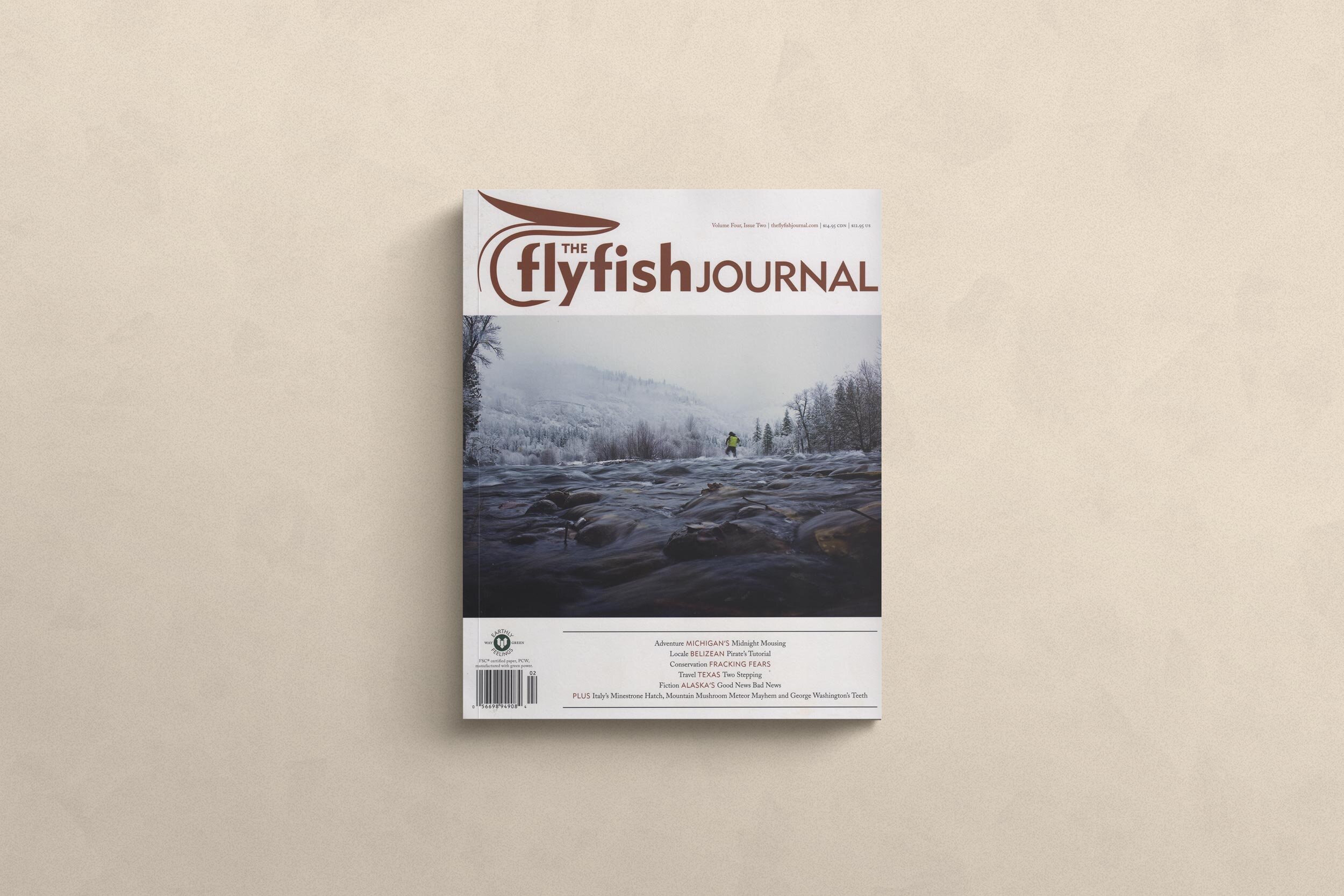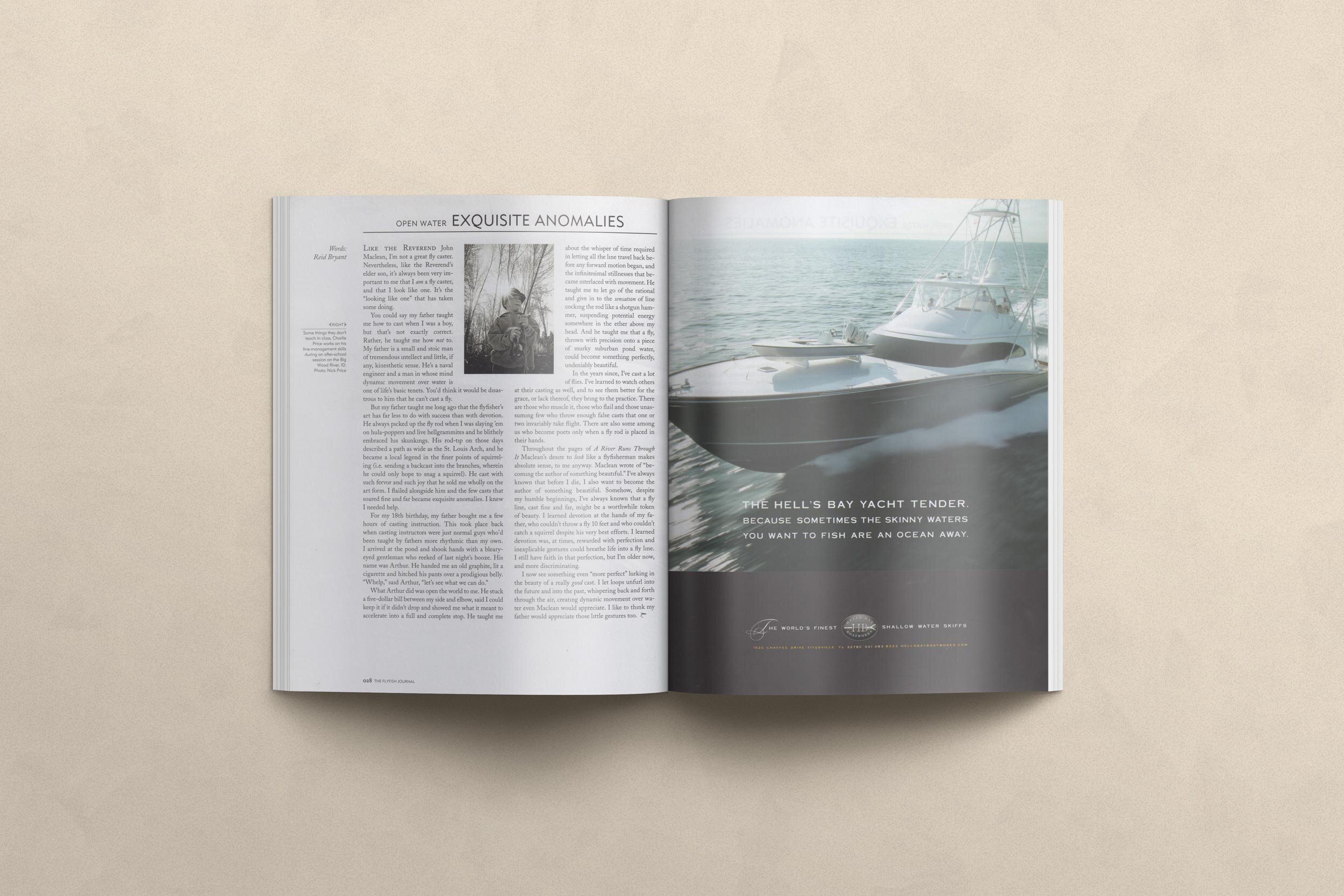Exquisite Anomalies
Like the Reverend John Maclean, I am not a great fly caster. Nevertheless, like the Reverend’s elder son, it has always been very important to me that I am a fly caster, and that I look like one. It’s the ‘looking like one’ that has taken some doing.
I guess you could say that my own father taught me how to cast a fly rod when I was a very small boy, but that is not exactly correct. Rather, I now realize he taught me how not to. My father is a small and stoic man of tremendous intellect and little, if any, kinesthetic sense. He is a naval engineer by training, and a man in whose mind dynamic movement over water is one of life’s basic tenets. You’d think it would be disastrous to him that he can’t cast a fly.
But my father taught me long ago that the fly fisher’s art has far less to do with success than with devotion. He always picked up the fly rod when I was slaying ‘em on hula-poppers and live hellgrammites, and he blithely embraced the skunk. His rod-tip on those summer days described a path as wide as the St. Louis Arch, and he became a local legend in the finer points of squirreling (i.e. mistakenly sending a wayward backcast into the branches of a bottomland oak, wherein, I suppose, he could only hope to snag a squirrel). He cast with such fervor, and with such evident joy, that he sold me wholly, his only spectator, on the art form. I flailed right alongside him through adolescence, and the few casts that soared fine and far became exquisite anomalies. By young adulthood, I knew I needed help.
For my eighteenth birthday, my father bought for me a few hours worth of casting instruction on a suburban trout pond. This took place back when the FFF was still embryonic, and casting instructors were just normal guys who had been taught by fathers more rhythmic than my own. I arrived at the pond, and shook hands with a bleary-eyed gentleman who reeked of last-night’s booze. He said his name was Arthur. He handed me an old Orvis graphite, lit a cigarette, and hitched his pants over a prodigious belly. “Whelp,” said Arthur, blowing smoke out towards the pond. “Let’s see what we can do…”
What that fellow did was open up the world to me. He stuck a five-dollar bill between my side and elbow, said I could keep it if it didn’t drop, and showed me what it meant to accelerate into a full and complete stop. He taught me about the whisper of time required in letting all the line travel back before any forward motion began, and the infinitesimal stillnesses that became interlaced with movement. He taught me to let go of the rational and give in to the sensation of line cocking the rod like a shotgun hammer, suspending potential energy somewhere in the ether above my head. And he taught me that a fly, thrown with the precision of a dart onto a piece of murky suburban pond water, could become something perfectly, undeniably beautiful.
In the years since, I’ve cast a lot of flies. I’ve also cast a lot of barren lines, over summertime lawns, abandoned parking lots, and snow-covered January dooryards. I’ve learned to watch others at their casting as well, and to see them better for the grace, or lack thereof, that they bring to the practice. There are those that muscle it, those that flail, and those unassuming few who throw enough false casts that one or two invariably take flight. As with anything, there are also some among us who become poets only when a fly rod is placed in their hands.
Norman Maclean’s desire to look like a fly fisherman makes absolute sense, to me anyway. Maclean wrote, in reference to the cast, of “becoming the author of something beautiful”. I have always known that someday before I die, I also want to become the author of something beautiful. Somehow, despite my humble beginnings, I’ve always known that a fly line, cast fine and far, might be a worthwhile token of beauty. I learned devotion at the hands of my father, who couldn’t throw a gang of wet flies ten feet, and who couldn’t catch a squirrel despite his very best efforts. Even as a boy, I learned that devotion was at times rewarded with perfection, and inexplicable gestures could breathe life into a fly line. I still have faith in that perfection, but I’m older now, and more discriminating. I now see something even “more perfect” lurking in the beauty of a really good cast. I let loops unfurl into the future and into the past, whispering back and forth through the air above me, creating dynamic movement over water that I think my father would appreciate. Perhaps Norman Maclean would appreciate those little gestures too.
First published in The Flyfish Journal

